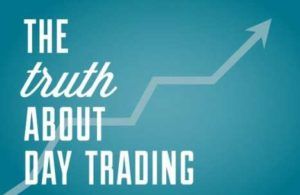People on social media post the large profits they made from big, one-day bets in intraday trading For some, this form of trading is tempting. What’s better than buying a few stocks or Options , waiting an hour or two, and then making more than Lakhs and Cores of Monry? It seems so simple and so easy.
The reality is that consistently making money as a day trader is very diffcult, For those considering day trading for a living, it’s important to understand some of the pitfalls that may arise.
When you look at a price chart—whether it be for a stock, Options, or futures contract—it seems like making money should be pretty easy. Many Traders think, “If I had gotten in there, I could have made a fortune.”

Why is trading so hard?
At one point or another, everyone who has interactions with the market asks oneself, “Why is trading so hard?” There are legitimate reasons why trading should be difficult: markets are highly random; whatever edge we can find is eroded by competition from smart, well-capitalized traders; some traders work within various constraints; and markets are subject to very large shocks that can have devastating effects on unprepared traders. Even so, it seems like something else is going on, almost like we are our own worst enemies at times. What is it about markets that encourages people to do exactly the wrong thing at the wrong time, and why do many of the behaviors that serve us so well in other situations actually work against us in the market?
Part of the answer lies in the nature of the market itself. What we call “the market” is actually the end result of the interactions of thousands of traders across the gamut of size, holding period, and intent. Each trader is constantly trying to gain an advantage over the others; market behavior is the sum of all of this activity, reflecting both the rational analysis and the psychological reactions of all participants. This creates an environment that has basically evolved to encourage individual traders to make mistakes. That is an important point—the market is essentially designed to cause traders to do the wrong thing at the wrong time. The market turns our cognitive tools and psychological quirks against us, making us our own enemy in the marketplace. It is not so much that the market is against us; it is that the market sets us against ourselves.
Can you make money day trading?
Most of the time, day trading is not profitable, but it can be profitable. Traders sometimes succeed at predicting a stock’s movements and raking in six-figure profits by accurately timing the market.
You may hear stories of some traders making money in professional settings, leaving their Jobs, and calling themselves “successful” day traders — but without ever having risked their own money in any trades! A non-professional investor trying to learn day trading using his or her own money is unlikely to succeed. On rare occasions, an individual investor can capture explosive gains. But far more common are the instances of day trading ruining lives or financial situations.
For a long time, I have made trading such a difficult and consuming endeavor just because of my inherent craving for certainty. The act of wanting and needing my trades to turn out a certain way caused me a great deal of anxiety and frustration.
- I would check my PnL all the time. Upticks would lift my mood and downticks would have the opposite effect.
- Say I bought 100 shares of XYZ, I would then spend my time reading all the pieces of news that came out about the company. I would look for information scavenged from the depths of the web, just to find a modicum of certainty; of piece of mind.
- I would pray for the market to move my way, and I would pray that the market gods would hear my prayers.
But then, I learned of a simple way to dramatically reduce the anxiety and the obsession, and it’s only much later that I discovered it: Acceptance – of the unknown.
